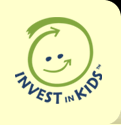Developmental milestones describe what most children are capable of doing at a particular point in time. Developmental milestones also provide a snapshot of the new skills many children will be starting to master in the upcoming months or year. Knowing what children are capable of, and what they will be practicing, can help you provide appropriate experiences to enhance your child's development. Remember, developmental milestones only provide benchmarks. Each child develops at his or her own pace. So, in any particular child some skills may emerge early, while others may appear later. If you have any concerns about your child's development, consult your child's physician.
Social | | Typically Can:Show fear of separation from a parentImitate othersFinger feed himself, but is still messyRespond differently to familiar and unfamiliar facesExplore his surroundings with enthusiasmEnjoy the company of other babies by watching and imitating them | | Emerging Skills:Holding and drinking from a cupShowing an air of independence |
|
Intellectual | | Typically Can:Find a toy that is covered upWatch where an object goes as she drops it on purpose, for example, a toy into a basket, food on the floor or a ball as it rolls awayEnjoy looking at pictures in booksRespond to her own name when called | | Emerging Skills:Placing cylindrical objects in a matching hole in a container, for example, a spool of thread or a ping pong ball into the lid of a coffee can or a yogurt potRepeating an action that gets a reaction, for example, knocking over blocks |
|
Language | | Typically Can:Use gestures to show he wants something, for example, pointingTurn in response to his own nameUnderstand simple instructions, for example, "wave bye-bye"Say "mama" or "dada," but not always to the specific personFollow one command, for example, "don’t touch" or "find the ball" | | Emerging Skills:Saying a few words, for example, "oh-oh," but understanding many moreListening to a short story |
|
Emotional | | Typically Can:Cooperate in simple give and take games, for example, peek-a-boo or hide-and-seek with toysReach to be picked up and heldTest reactions of her parents at bedtime or feeding timeShout for attention | | Emerging Skills:Needing and expecting to experience rituals and routinesExpressing anger and the beginnings of tantrumsMay display fear and insecurity with situations that were accepted before |
|
Gross Motor | | Typically Can:Get to a sitting position by himselfPull himself to standing using furnitureCrawl or creep forwardSit down from standingWalk with one hand held | | Emerging Skills:Creeping upstairs"Dancing" to musicThrowing a ball |
|
Fine Motor | | Typically Can:Grasp items with her thumb and forefingerBang two blocks togetherTake objects out of a containerPoke with her pointer fingerUse both hands at the same time, for example, hold a block in each hand | | Emerging Skills:Putting three or more objects into a containerStacking two blocksFocusing on small objects, for example, carpet fluff, raisins or dry cereal |
|
|

